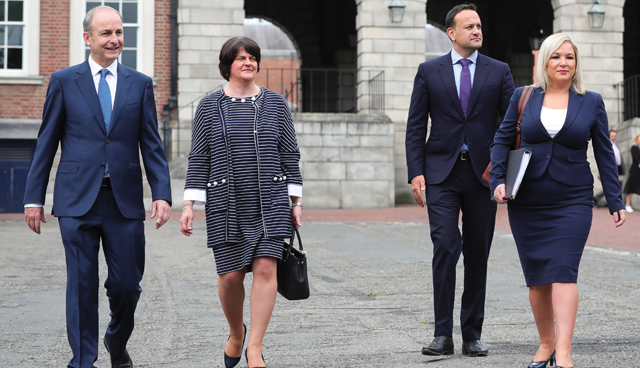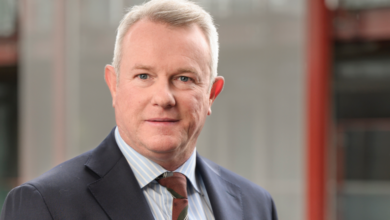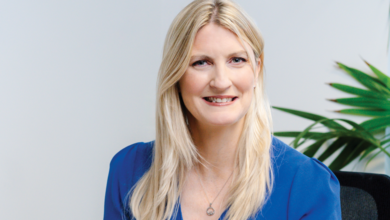‘Constructive’ North South Ministerial Council

Covid-19, Brexit and devolution were discussed as the North South Ministerial Council (NSMC) met for the first time in almost four years, but comments made after the meeting suggest it may not have been as “constructive” as portrayed.
The 24th meeting of the NSMC marked the first plenary meeting of the two newly formed governments in Ireland and represented the first meeting of the cross-border co-operation body, established under the Good Friday Agreement, since November 2016.
Ironically, it was the northern representatives who entered the meeting with the greatest experience of power sharing between parties, having been back in government since January. However, it was Micheál Martin’s elevation to Taoiseach that injected fresh emphasis into talks on greater north-south co-operation.
Martin has previously expressed a “passion” for creating a shared island and made the NSMC meeting a priority in his first month at the helm. The meeting came shortly after the Taoiseach’s first official visit north to meet with the First and deputy First Minister, which saw the two northern leaders share a platform for the first time since the fallout over Michelle O’Neill’s attendance at the funeral of republican Bobby Storey.
“It was a warm meeting, it was a meeting in which a wide array of views were expressed. North-south cooperation is a key priority for our government,” said Martin. Arlene Foster described the meeting as “worthwhile” and “productive”.
However, shortly after the meeting, Foster moved to brand as “disappointing” comments made in the media by the Taoiseach that he intended to “beef up” the Shared Island Unit, suggesting that Great Britain may get fed up with the North. “What happens if England gets turned off Northern Ireland? We’ve got to be thinking all this through,” he questioned.
Foster took to Twitter to hit back at Martin’s comments stating, “A good neighbourly north-south relationship requires consistency. After a positive NSMC, the Taoiseach’s comments are disappointing.
“The principle of consent determines Northern Ireland’s place in the UK,” she said, adding: “Northern Ireland will keep moving forward by respecting our diverse identities, not dubious theories.”
The New Decade, New Approach agreement which saw the restoration of the Executive in Northern Ireland in January included a number of commitments relating to the reestablishment of the NSMC including specifically issues spanning Brexit and parliamentary relationships.
Unionist participation in the NSMC has been chequered, dating back to its inaugural meeting in December 1999, which the DUP boycotted. DUP leaders in the past have questioned the need for its existence and called for its suspension over value for money concerns.
However, all members of Northern Ireland’s Executive attended the meeting apart from the Justice Minister Naomi Long, leader of the Alliance Party.
The order of business centred on the Covid-19 response, where despite a Memorandum of Understanding on public health cooperation between the two health departments, noticeable gaps have appeared in the restrictions being imposed by both governments, most notably around travel restrictions.
The NSMC meeting agreed to an early meeting of the Council to review ongoing cooperation in responding to the pandemic and also that upcoming meetings of the Council in relevant sectors will consider how north-south approaches could contribute to the promotion of economic and social recovery.
In relation to the commitments under the New Decade, New Approach agreement, specifically the delivery of projects that will benefit people across the island, the Council requested that relevant ministers take forward discussions on these commitments and noted that senior officials will continue to meet regularly to maintain a strategic overview of the projects and commitments set out. An update of the commitments is set to be presented at the next Council meeting scheduled for December 2020.
On Brexit, the Council discussed the Protocol on Ireland/Northern Ireland. The joint communiqué ambiguously stated that ministers recognised the common interest of both jurisdictions to minimise disruption to trade and economic activity on the island.





